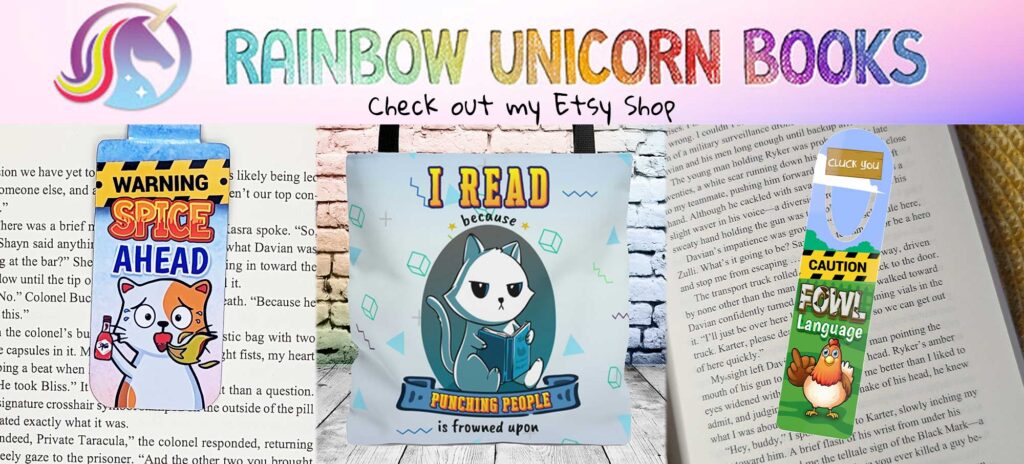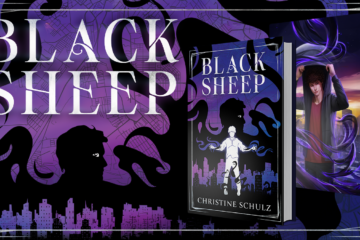There comes a time in every reader’s life when they read a book and just don’t enjoy it. Whether you’re an ARC reader or someone who likes to support authors by leaving reviews, you might be asking yourself the question: Should I leave a negative review?
Let’s back up. What exactly is a negative review?
Negative is such a strong word. Although most readers and authors will see a 3 star review as bad, that’s not always the case. I have quite a few constructive reviews that are 3 stars. They didn’t say the book was awful, just that it wasn’t what they were expecting. It wasn’t for them, and that’s totally fine.
The negative comes from the fact that in general, it’s difficult for indie authors to get their names out there and sell their books. Reviews are hard to come by, and in a world where there are millions of 4.5 and 5 star rated books with thousands of reviews, that one measly 3 star (or less) review could be a deal breaker for a potential reader and devastating to the author who may only have a couple dozen reviews. It could also drag down the overall rating of the book. For a book with thousands of reviews, a couple low ratings might not be a big issue but for those authors who aren’t as lucky, it can be a big blow. It takes on average four 5-star reviews to make up for a single one star review, and if the reviews aren’t exactly rolling it, or the author receives other low ratings, that could take a while.
Sometimes, three star reviews are actually good!
A book with nothing but 5 star reviews looks a bit suspicious to me, especially if most of those reviews are vague and don’t detail much about the story. Having a mixture of reviews is actually a good thing, since it ensures the reader that the author isn’t merely trying to scam the system. Some authors tend to get upset at this, especially if you’re an ARC reader. A lot of times, authors might feel that since they offered you a free book that you specifically asked for, that you’re expected to provide them with a glowing review. If the author complains to you about it, it’s best not to engage with them. They had provided you with a copy in exchange your your honest review, and your honest review is what you gave.
In many cases, Amazon likes to display the more “critical” reviews at the top of results, which are often the 3 star reviews. It’s the first impression readers will have of the book, and a lot of readers tend to go looking for those lower rated reviews since most 5 star reviews typically only rave about how awesome everything is and aren’t always that helpful. The “bad” reviews will call out things certain readers might not enjoy. For example, let’s say you’re expecting a romance novel and there wasn’t a lick of romance in the book. You might not have liked that, but that might be exactly what another reader is looking for.
So, should I leave a review or not?
This is totally up to you! Some reviewers choose not to leave a review out of respect for the author, but remember, on the other hand, even critical reviews can be helpful (if they’re written correctly). You essentially have a few options:
- Leave the review, but if you consider something 3 stars or lower don’t just leave a star rating. Always make sure to accompany your review with feedback on why you chose to rate it the way you did.
- Don’t publish the review. Some readers just aren’t comfortable giving public feedback, especially if their name is attached to it.
- Contact the author. Even if you’re an ARC reader, authors can’t force anyone to leave reviews. If you had issues with the book, consider providing your feedback privately through an email or reach out to them on social.
I would like to go ahead and leave that “negative” review. What should/shouldn’t I mention?
There is one golden rule to writing reviews, no matter what kind: Be helpful. Be respectful. Balance out the good with the bad. The author likely put in months of their time to write the story, perhaps even spent thousands of dollars to edit it and have a nice cover designed for it. Bashing the author and the story solves nothing and isn’t helpful to anyone. Here are some things to consider:
Was there something specifically about the character/s that bothered you?
We all have that type of character we enjoy reading about. Whether it’s a morally gray character, a weak character that grows into a strong role, the snarky character who teases everyone, or the popular enemies to lovers trope. Sometimes, you might find a character to be flat, or maybe they’re too over the top. Perhaps not enough backstory about them was given. A character who was teased or betrayed may be distrusting and push people away. Someone who grew up on the streets may be more inclined to do something rash, like stab someone, to protect themselves. These characters aren’t necessarily bad people, but if there’s not enough information to relate to their actions it can certainly make them seem that way. Here are some examples on how to handle situations you might come across:
- The main character had a consistently rude attitude throughout the entire story. It made her unrelatable and sometimes unlikeable because I didn’t understand why she took the actions she did. That said, I appreciated near the end that she showed signs of at least trying to open up and I hope to see her grow in this aspect in the next book.
- The character didn’t seem to have much personality, just going through life and trying to get by. Then one day something triggers a memory and he stabs someone. Although the event really picked up the pace in the story, it was unexpected and I struggled to understand what purpose this served.
- The main character had a fierce, determined personality despite being cast aside by the people she cared about. She never let anything get in her way and always pushed forward, except I found it frustrating that she often ignored the advice and feedback from those who were trying to help her. She would take matters into her own hands and despite making the same mistakes over and over again, didn’t learn from them.
Was there something about the plot that didn’t quite click?
Especially in the sci-fi and fantasy genre, plots can get pretty complex. There’s magic spewing everywhere, so many different types of future technology and AIs that run society. It can be difficult to tie this all together, and do so in a way that helps the story flow and develop. Here are some examples of issues you may come across:
- The story was fast paced, focusing more on the issue at hand rather than the characters and their challenges. One moment, the main character discovers he has this special power, and a few chapters later he’s leading an army into battle. I would have liked to see the character grow into this role rather then just having been handed it.
- There was a lot of thought put into the society this author built that made it fun and unique to read about, but at times I found all the different names and rules too complex and difficult to follow.
- The story starts off slow, going over a lot of details that seemed irrelevant. There’s a lot of dialogue, not much action, until about halfway through the book I got sucked in when everything changes and it all starts to make sense.
What shouldn’t I mention?
I’ve seen many low reviews mention trigger warnings, and the reviewer didn’t appreciate that there were scenes that involved them. Yet, if the reader had just looked at the description, many authors include these warnings. There’s also no need to get political. If you don’t enjoy reading about LGBTQ characters, then the book isn’t for you to begin with. A bully romance is called a bully romance for a reason. The fact that “she was bullied but still fell in love with the guy” should be a given will happen at some point.
There is ongoing controversy about mentioning typos. No manuscript is 100% clean, even those pushed out by major publishers. A mistake or two is bound to slip through. Typos and formatting can also be easily fixed. For example, I once released a book with a duplicate of chapter 23 in it! I was completely embarrassed, but this actually wasn’t my fault. Amazon failed to update and release the correct version of my book. Of course I immediately fixed it, but if anyone had left me a bad review because of that, it’s no longer relevant although people would still see that review forever on my page. If you find the story was enjoyable, but there were many typos or inconsistencies in it, consider reaching out to the author to let them know they should have someone proofread it. Sometimes, Amazon fails to update the book file or perhaps the author already pushed an update that you can download to your e-reader.
The author also has zero control as to how Amazon or other providers ship your print book. If it’s delivered damaged, don’t blame the author for that!
Lastly, as I mentioned in the very beginning, don’t be a troll. There’s no need to say “My five year old daughter could write a better book than this.” Statements like that are clearly not helpful to future readers. You wouldn’t like it if your boss came up to you and said “My five year old could do your job better!” would you?
Well, there you have it. I hope this information helps you structure your review in a helpful way. If you’re looking for generic information on things to focus on in your review, check out my blog post How to Write a Book Review.



